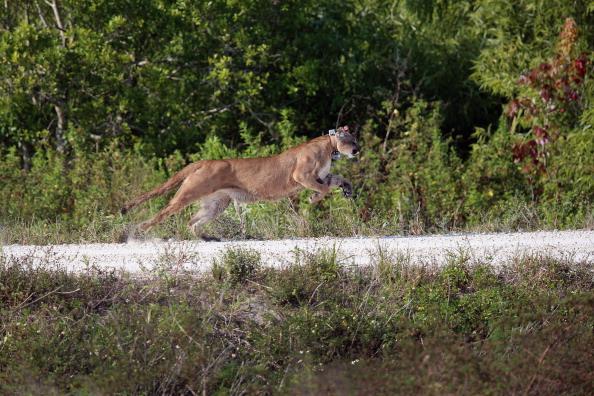Earlier this year, Representative Doc Hastings, a powerful foe of wildlife conservation and Chairman of the House Natural Resources Committee, launched a horribly biased and slanted attack on the Endangered Species Act (ESA). It began with the release of a report and set of ESA “reform” proposals prepared by a highly partisan “committee” formed by Hastings, with support from like-minded anti-ESA members of the House. The report outlined an aggressive and hostile legislative strategy to weaken or even eliminate a wide range of key ESA protections for imperiled wildlife. Today, we’re seeing the first line of attack from that strategy emerge, as Rep. Hastings guides to the House floor a bill that will make it much harder to protect endangered species from sliding towards extinction.
Rep. Hastings is savvy enough to avoid launching a broad scale attack on the ESA in its entirety; he knows public support for protecting imperiled wildlife continues to be very high. So instead, he is selectively packaging his first round of “balanced reform” attacks on key sections of the ESA. Rep. Hastings knows that if he succeeds with these amendments, he will have taken a major step in undermining the ESA. Unfortunately for Hastings, the White House sees through the ploy, and today the Obama Administration released a veto threat saying that if the President were presented with H.R. 4315, his senior advisers would recommend that he veto the bill. We’re grateful the the White House has taken such a strong stand on protecting imperlied species.
Despite Rep. Hastings’ cynical claims to the contrary, this bill will do nothing to enhance the recovery of our nation’s endangered wildlife. In fact, it will significantly reduce the ability of the public to hold federal agencies accountable for complying with the ESA, it will generate much more red tape in implementing the law, and it will undermine the long standing requirement that decisions under the ESA be based upon the best available science.
And guess who stands to benefit the most if this bill is passed? Not surprisingly, the oil and gas industry, timber and mining companies and other economic special interests. These special interest groups have campaigned to weaken ESA protections for decades, and sadly they have found their latest willing ally in Rep. Hastings. His bill would help these industries by removing important checks and balances as they seek to circumvent the ESA’s provisions protecting imperiled species.
If Rep. Hastings and his ESA wrecking crew have their way, the ESA would be selectively “reformed” into oblivion – dismantled piece by piece – even as Hastings’ crew continues to profess their deep love for endangered species. In truth, with ESA “friends” like Rep. Hastings, why would the ESA need any other enemies?
The more important question is, why have political leaders like Rep. Hastings turned their backs on the values and commitment our nation made 40 years ago when we passed the Clean Air Act, the Clean Water Act and the ESA? It was this commitment to a higher set of conservation values that led to the passage of these landmark conservation laws. Protecting our air, land, water and imperiled wildlife for our children and their children is as noble a cause today as it was back in the 1970′s. If Rep. Hastings and his supporters no longer support these lofty values, they owe us all an explanation for recklessly squandering our future.
Our political leaders are drifting radically off course, abandoning values we’ve embraced for generations. Don’t let the voices of the powerful few outweigh the interests of the majority of us who know the importance of conserving biological diversity in our country and want our natural heritage protected for future generations and beyond.
This article was originally written by Jamia Rappaport Clark for www.defendersofwildlife.org, and originally published on HuffPost Green. For the original article and more information, please click HERE.
